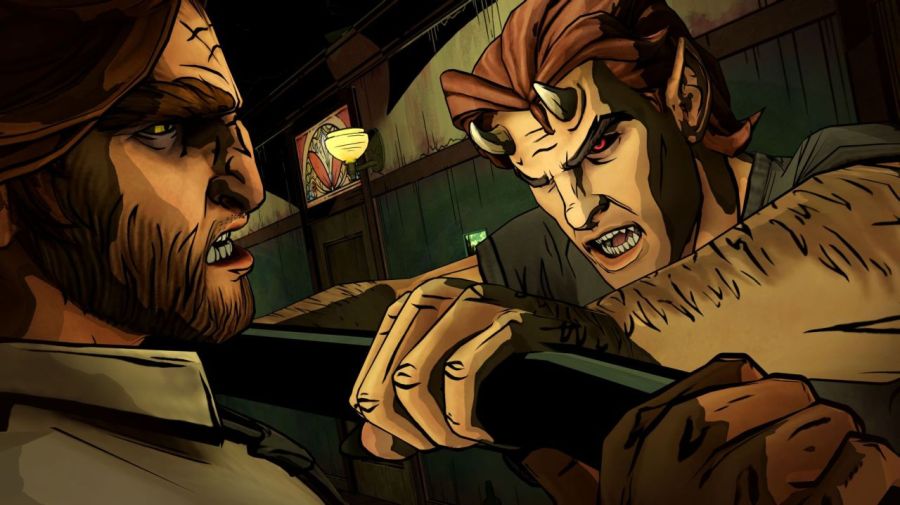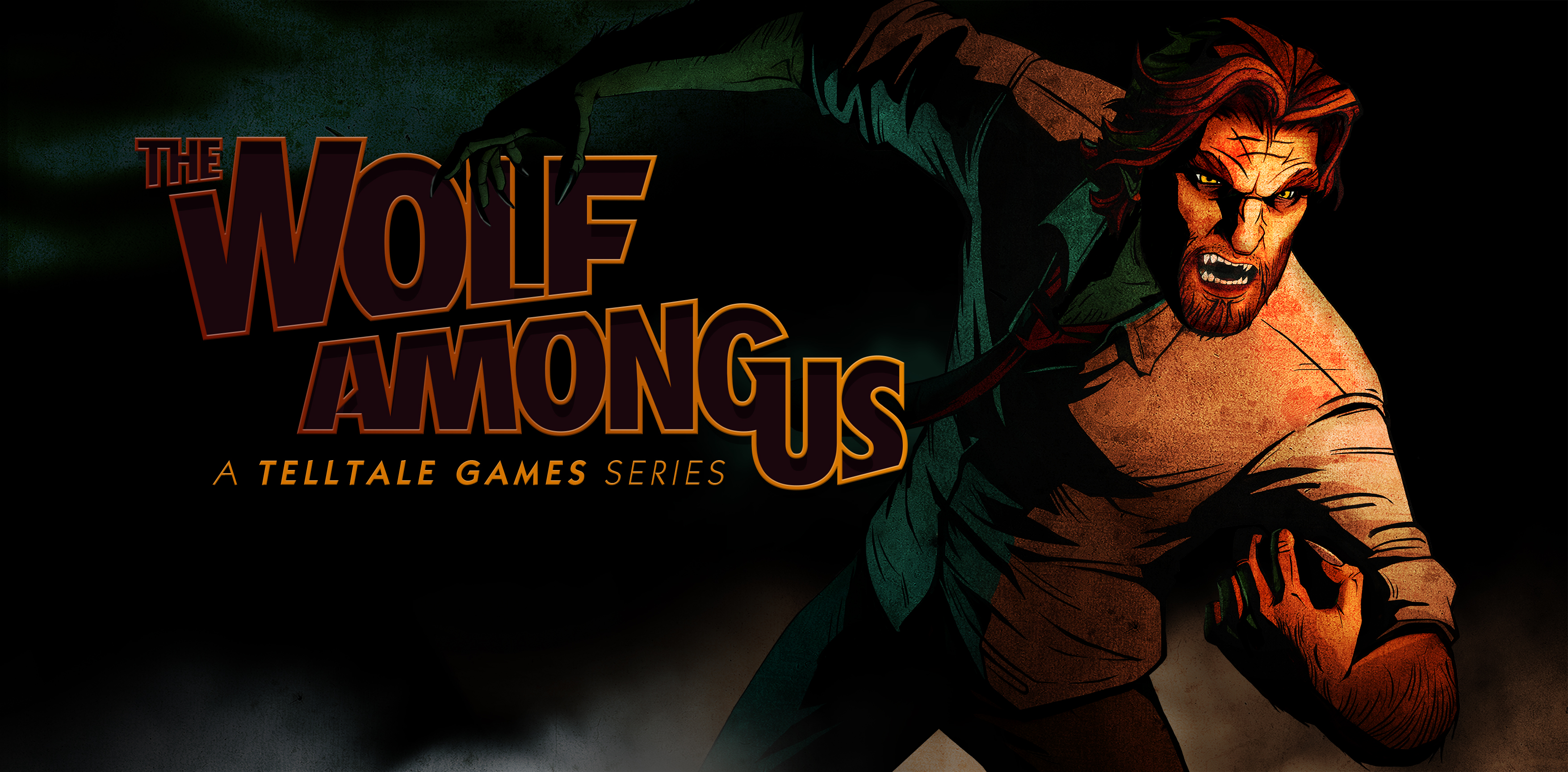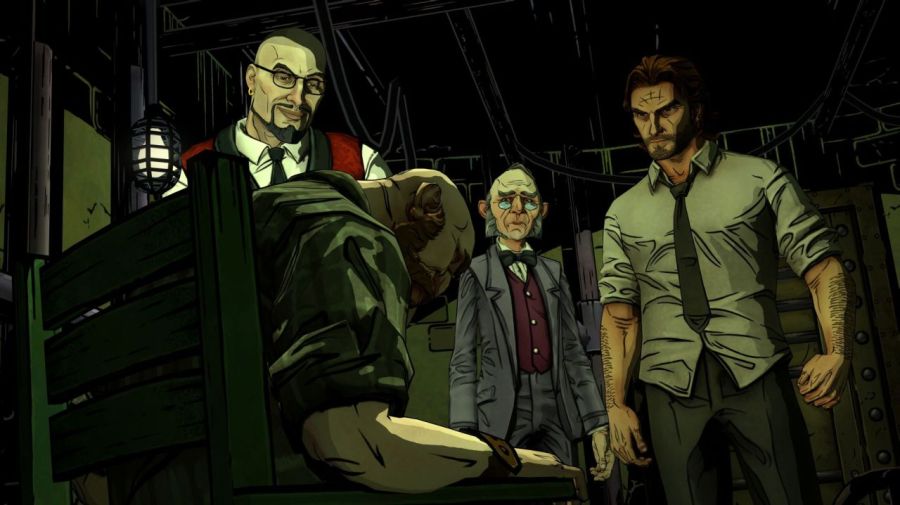Smoke and Mirrors does a lot with very little. By the end of the almost two hour game, you will find that you aren’t much farther along with your assumptions or expectations than your were at the end of the first episode. But wading in Telltale’s murky pool of Fable-flavored urban pulp crime serves to really help you establish your relationship with Bigsby Wolf and frenemies, which provides an ultimately satisfying second act to this stellar series.
With the events of the first chapter becoming the immediate starting point of this story, you’re welcomed back into Fabletown, NYC with a tremendous weight to bear. Throughout your journey through the next couple of nights, you will see your previous episode’s decisions embedded in familiar bits of scenery, or embittered comments from returning cast members. A real testament to the storytelling prowess of the writing team is that even when characters wear the results of your actions on their sleeves, their immediate reactions to you never feel like cardboard, canned responses. The idea of, “Oh you were mean to me before, now I’m going to be mean to you,” never becomes a foregone conclusion – the inhabitants of Wolf’s beat feel like real people who, whether they like it or not, still have to respect your presence and, in some cases, still need your help.
The world is still painted in grainy neons, but the personalities of The Wolf Among Us are as grey as they get. Even the real snakes like Bluebeard only seem like products of their environment, which lends him a bit of relatability. The slower pace of the plot really casts a lens on the nuances of many of these characters allowing for such second guesses to occur. The pretty open way they let you handle many of the tougher situations in Smoke and Mirrors reflects the titles dedication to moral fence sitting. No choice you make really feels like a definatively right or wrong one until you make it and accept the consequences. You can’t make choices in hopes to get the “right” outcome then, you can only hope to not betray yourself and your own beliefs. In other words, you really empathize with Bigby in the moments that are most critical, and that is both empowering and worrisome as a player, but ultimately the recipe for a great gameplay experience.
 It’s not a very long episode overall, and it may serve as a legitimate concern to people who don’t own the season pass. The overall plot seems more like a set up to something as bombastic as the first episode, and the carrot-dangling is a bit of a cop out when it comes down to it. There are no truly stunning moments visually; no clever slow-mo “make your choice” moments to press your nerve, and that may also be a legitimate disappointment, considering how well they worked the first time. Smoke and Mirrors also lacks any real substantial action moments, gameplay wise. The very little action that can happen is largely optional, and has more affect on the plot than on your wits, which may actually be a good thing, considering how completely mediocre the mechanics for these scenes really are.
It’s not a very long episode overall, and it may serve as a legitimate concern to people who don’t own the season pass. The overall plot seems more like a set up to something as bombastic as the first episode, and the carrot-dangling is a bit of a cop out when it comes down to it. There are no truly stunning moments visually; no clever slow-mo “make your choice” moments to press your nerve, and that may also be a legitimate disappointment, considering how well they worked the first time. Smoke and Mirrors also lacks any real substantial action moments, gameplay wise. The very little action that can happen is largely optional, and has more affect on the plot than on your wits, which may actually be a good thing, considering how completely mediocre the mechanics for these scenes really are.
Another signature of Telltale’s development rears its head in this title as well: the choppy framerate. Though not as completely debilitating as in some of their previous entries, any larger cutscene or cinematic montage almost always begins with a dark screen as the v/o track starts, miscued. It figures itself out quickly, though, and never becomes a problem that prevents you from gathering important story points or interacting with the game.
Closing Comments:
The second chapter of Telltale’s The Wolf Among Us is an improvement in many of the areas that the first act was already doing quite well. The quality of the acting has stepped up, and the rather antonymically slow and steady plot allows for each character to grow and develop past the rather narrow roles they’ve played previously. It has less action, and more story. One that embraces the dark yangs to its neon yins, investigating repressed loss, the casualties of keeping secrets, and the ugly side of some of the more deviant Fable’s sexual appetite. A fairy tale Bad Lieutenant is becoming a benchmark for bringing role-playing back to role-playing games, and hopefully we wont have to wait so long for the third episode to see how deep this rabbit hole goes.
This review is based on a review code provided by Telltale Games for the Playstation 3.







